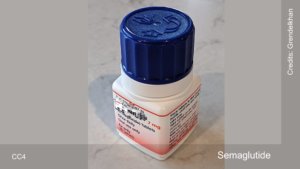The Supreme Court is deliberating a significant case involving the FDA and its refusal to approve flavored e-cigarettes. The FDA’s decision stems from concerns about the products’ appeal to minors. The vaping industry argues the agency changed its standards mid-process, a claim the FDA denies.
- Supreme Court Reviews FDA Actions: The Court is evaluating whether the FDA acted appropriately in denying flavored e-cigarette approvals, citing youth protection concerns.
- Administrative Procedure Act Debate: Vape manufacturers argue the FDA violated the Act by allegedly changing standards mid-review, while the agency maintains its process was consistent.
- Regulatory Authority at Stake: The case could redefine the FDA’s role in regulating tobacco and e-cigarettes, with broad implications for public health policy.
- Youth vs. Adult Use: The FDA claims flavored vapes pose significant risks to minors, outweighing potential benefits for adult smokers, which influenced its decisions.
Reports from Politico indicate that the justices showed varying degrees of skepticism. Justice Brett Kavanaugh highlighted that the FDA consistently prioritized youth protection in its evaluations. Meanwhile, some conservative justices questioned whether the agency offered sufficient guidance on evidence requirements.
The case underscores the FDA’s authority to regulate tobacco products, including e-cigarettes. It follows a series of legal challenges from vape manufacturers, with the FDA prevailing in most cases. However, a ruling from the 5th U.S. Circuit Court of Appeals against the FDA prompted the Supreme Court review.
At the core of the case is whether the FDA violated the Administrative Procedure Act in denying flavored vape approvals. The FDA asserts it assesses each application individually and that the denied applications failed to present adequate evidence of public health benefits.
Justice Elena Kagan remarked that applicants were well-aware of the FDA’s stance on flavored vapes being attractive to youth. She noted that the agency’s position has been consistent throughout the process. Justice Ketanji Brown Jackson echoed this sentiment, expressing perplexity over claims of insufficient notice.
The FDA began its oversight of e-cigarettes in 2016, following their market debut. The agency has approved certain menthol and tobacco-flavored products, citing lesser youth appeal. It maintains that the potential risks to minors from flavored vapes outweigh any advantages for adult smokers.
The outcome of this case could significantly impact the vaping industry and the scope of federal regulatory authority. The Supreme Court’s decision is expected by the end of its term in June.







Be First to Comment